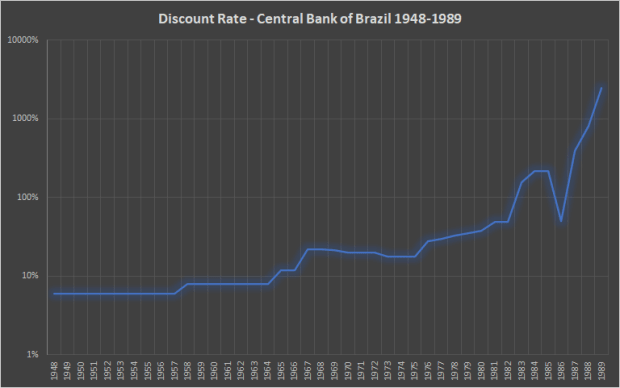U.S. Secretary of State Wants to Subject Cryptocurrencies to Existing Regulations
United States Secretary of State Mike Pompeo shared his thoughts on bitcoin and cryptocurrencies in general during an appearance on CNBC’s Squawk Box on August 20, 2019. In essence, the career military man and former CIA director wants them treated like anything else in the global financial arena.
Connecting Bitcoin to Terrorism
“You’re going to think I’m crazy, but I’m going to ask you about Bitcoin,” Squawk Box host Joe Kernen said, connecting the cryptocurrency to terrorism following a comment by Pompeo that “the greatest threat to stabilitity in the Middle East is … Iran.”
Kernen also alluded to U.S. Treasury Secretary Mnuchin’s comment that he had “great angst about any type of virtual currency and the types of nefarious activity” that they allow, citing recent reports of terrorists turning to cryptocurrencies as their monetary medium of choice. Mnuchin has been one of several government officials to espouse concerns over cryptocurrency’s potential as a terrorist financing tool in light of Facebook taking a crack at crafting its own digital currency.
In response to Kernen’s question in context, Pompeo remarked that “[w]e need to preserve a global financial system” that keeps tight controls on the flow of money, to keep it from financing acts of terrorism.
Applying Financial Institution Regulations to Bitcoin
Kernen rounded out the segment with Pompeo by asking “How do you regulate these things? Like libra or bitcoin?”
Kernen, whose pro-Bitcoin stance as a member of the mainstream media has made him a favorite among the Bitcoin faithful, added that regulating bitcoin would be difficult.
“We should use the same framework that we use to regulate all other financial transactions today,” Pompeo responded. “That’s essentially what these are. These are monies moving through markets, or in some cases, disintermediated transactions.”
Though Pompeo demonstrated an understanding that cryptocurrencies operate without the central parties required to process and handle money in the current system, that doesn’t change his outlook on regulation.
“But we should regulate them in the same way,” he said, qualifying that cryptocurrencies’ disintermediation is no pass. “The same set of requirements that apply to things flowing through SWIFT or our financial institutions ought to apply to those too.”
That answer seemed to conflate Bitcoin and Libra. Given the latter’s centralized nature, it may be easy to accommodate under the existing regulatory framework as Pompeo would like. And other centralized digital currencies — including zcash, centrally-issued tokens and, arguably, ether — could fit into the current regulatory mold as well.
But, as Kernen said early on in the segment, “[bitcoin’s] already out of the bag,” and it would be extremely difficult to wrangle it back in and subject it to the same rules as legacy financial institutions.
The Financial Action Task Force (FAFT), a division of the G7, has recommended that regulators treat cryptocurrency service providers as money transmitters — and behold them to the so-called “travel rule” that requires AML for transfers — to make regulating the likes of bitcoin easier. This has left questions as to whether peer-to-peer payments between users would be subject to the same scrutiny, or whether they would just be treated as cash payments.
At any rate, Pompeo seems to agree that the best route in regulating digital currencies is through the existing infrastructure.
“I concede that it will be difficult to do, but the regulatory theory we ought to apply is that,” he concluded.
The post U.S. Secretary of State Wants to Subject Cryptocurrencies to Existing Regulations appeared first on Bitcoin Magazine.









